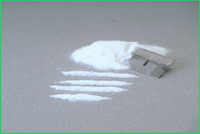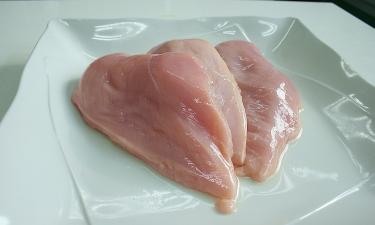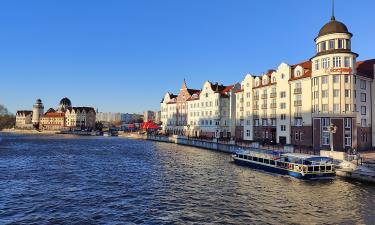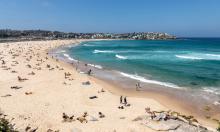Venezuela is best and easiest path for Colombian cocaine
A plane swoops low across the open waters south of the Dominican Republic, and three men in a fishing boat haul in the airtight bales that have just splashed into the waves.

Suddenly the men spot a U.S. plane and British helicopters overhead. Video shot by their pursuers and seen by The Associated Press shows the men hurling the parcels overboard and trying to flee, but their motor dies. The men are picked up by a Dominican cutter while a British navy helicopter recovers a half-ton of cocaine.
Tracked by U.S. surveillance, the May 12 flight originated in Venezuela, which U.S., European and Colombian counter-narcotics officials say has become the path of least resistance for smugglers of Colombian cocaine.
The drug shipments are flowing nearly unhindered from Colombia into Venezuela, then leaving by the ton on ships and planes making deliveries for the multibillion-dollar U.S. and European markets, the officials say. They say high-level corruption has also helped make Venezuela a major haven for drug smugglers running from the law.
The cocaine passing through Venezuela on President Hugo Chavez's watch has risen by as much as 30 tons a year since 2002, reaching an estimated 300 tons in 2006, according to U.S. Ambassador William Brownfield. That's roughly a third of the world's supply.
"Caracas is replacing Bogota (Colombia's capital) as a center of everything related to drug operations," said Mildred Camero, who was Venezuela's top anti-drug official until she reported high-level corruption and was dismissed in 2005.
Venezuelan airports have become such sieves that airborne smuggling - almost all of it from Venezuela - now accounts for about 30 percent of cocaine and heroin traffic out of the Andes, compared with 10 percent two years ago, said U.S. Adm. Jeffrey Hathaway, outgoing director of the multinational command that coordinates drug interdiction in the region.
Of 46 suspected drug flights detected in the Caribbean by U.S. surveillance in the first four months of 2007, all but six originated in Venezuela.
"It's worrisome. It's historic," said Jose Luis Santiago Vasconcelos, who was Mexico's top organized-crime prosecutor last year when 5.5 tons (5 metric tons) of cocaine was seized on a DC-9 jet from Venezuela. Not since the 1990s had cocaine come to Mexico in such big planes. In February, another ton was seized in Mexico on a flight from Caracas.
Chavez says the steady barrage of U.S. condemnation on the issue twists the facts "to demonize our government" and ignores the fact that trafficking and drug-related corruption in Venezuela preceded his administration.
"We've landed the strongest blows against drug trafficking in all of Venezuelan history," he told the AP in a June 9 interview, citing increased seizures - including 142 tons (129 metric tons) of cocaine seized in the past three years - and claiming determined efforts are being made to weed out corruption.
Most U.S.-bound cocaine still moves north by sea - often in synchronized combinations of speedboats, trawlers and freighters - via the Caribbean or eastern Pacific to Mexico and Central America, then crosses the U.S. border by land.
But as Mexico cracks down on land shipments, and authorities get better at high-seas interdiction - the helicopters in the May 12 bust came off a British ship in the area - Venezuela is increasingly providing an alternative, counter-drug officials say.
Most Europe-bound cocaine is believed to pass through Venezuela, sent aboard ships and jets - 727s, DC-8s and Gulfstreams - to west African nationswhere enforcement is often weak and easily bribed, Hathaway said at the command's headquarters in Key West, Florida.
"The reason it is very hard for us to stop these flights is that the aircraft look like, smell like and act like legitimate commercial flights," said Hathaway, a U.S. Coast Guard rear admiral who retired in May as head of the Joint Interagency Task Force-South. "There is either no capability or no desire for Venezuela to halt these aircraft."
The multinational command gets its human intelligence from drug and customs agents on three continents. Its ships, planes, spy satellites and over-the-horizon radar scour 42 million square miles (108 million square kilometers) of high seas from the mid-Atlantic to the eastern Pacific. Partners currently include France, Canada, the Netherlands, Spain and Britain.
Also participating are all the drug-producing Andean nations except Venezuela, which has not sent a replacement since its liaison, an air force colonel, retired early this year.
Like the plane that made the May drop, drug flights from Venezuela are almost exclusively detected through aerial surveillance, Hathaway said, and almost always race back after dropping off their cargo.
In the 12 months leading up to Sept. 14, 2004, U.S. surveillance tracked 38 suspected drug flights from Venezuela to the Caribbean, Mexico and Central America. The following year, that number grew to 64, and the next to 115. In the 6½ months up to March 31, 2007, there were already 99 more.
Venezuela's Anti-Drug Office chief, Col. Nestor Reverol, says well over 200 National Guard soldiers have been dismissed in an anti-corruption purge, some officials have been jailed and Venezuela actively cooperates with a range of countries beginning with Colombia, where most of the world's cocaine is produced.
In September, for example, Dominican agents acting on a tip from Venezuelan authorities seized 2.4 tons (2.2 metric tons) of cocaine in a Belgium-bound shipping container. Last month, Venezuela seized 2.5 tons (2.3 metric tons) of cocaine as smugglers prepared to load it onto an Africa-bound private plane on Margarita Island. Among those arrested were six police officials.
"We're taking actions. We aren't standing by with our arms crossed," Reverol said.
But senior Colombian police and military officials report scant cooperation from the Venezuelans on drug interdiction.
And Antonio Mazzitelli of the U.N. Office on Drugs and Crime, who is responsible for western Africa, said he knew of no busts or seizures in his region that stemmed from information provided by Venezuela.
"The majority of the big seizures have been because a plane broke down" or because of Spanish or French high-seas interdictions, he said by phone from Dakar, Senegal.
A Dutch naval intelligence officer on the Caribbean island of Curacao, Lt. Cmdr. Frank Hermans, lamented the scarcity of shared intelligence from Venezuela, which is about 40 miles (65 kilometers) away: "We only encounter targets of interest coming from Venezuela due to surveillance."
Drug traffickers have always developed new routes and smuggling methods as law enforcement catches up to the old ones.
In the early 2000s, they began using supercharged speedboats to whisk loads of up to 5 tons of cocaine out of Colombia and Ecuador, to waiting ships. But smugglers increasingly looked to Venezuela as U.S.-Colombian naval coordination improved and tools such as infrared sensors boosted high-seas seizures.
Small planes now commonly dash into Colombia from Venezuela or Brazil, pick up drugs and vault back into Venezuela, where they often canland at commercial airports and avoid clandestine airstrips, said a senior Colombian police official who spoke on condition of anonymity because of political sensitivities.
Sometimes they do not make it. Two people were killed and a half-ton of cocaine recovered when a Venezuelan-registered Cessna crashed near the eastern town of El Tigre on May 21, authorities said. And on May 5, a Colombian police dog sniffed out 1.5 tons behind false panels on a Venezuela-bound truck.
The U.S. Drug Enforcement Administration still has about 10 agents in Venezuela, but their operations have been restricted since Chavez suspended formal cooperation in August 2005, accusing the DEA of being a front for espionage.
The break with the DEA came shortly after the dismissal of Camero, the Venezuelan anti-drug official, who had worked closely with the agency.
She told the AP she had submitted five reports on high-level drug corruption to the president and vice president, fingering police, military and National Guard officers, customs agents and even two state governors. She would not name names publicly, saying she fears revenge.
Camero said she was told Chavez never saw her reports.
Two senior Colombian police officials told the AP that the drug bosses who call Venezuela home include Wilber Varela, for whom the U.S. government has offered a US$5 million (3.7 million EUR) reward. They spoke on condition of anonymity, citing political sensitivities.
Reverol responded that he's in daily contact with the head of Colombia's DAS domestic security agency, and "if they tell me today where Wilber Varela is and I catch him, rest assured he'll be deported to Colombia within 24 to 48 hours."
The U.S. State Department says Venezuela has failed to pursue major traffickers and has arrested only low-level figures. In September, when Chavez extradited a man he called a top Colombian smuggler, Colombian officials said he was a lower-level player.
That man, Farid Feris Dominguez, told Colombian investigators that several high-ranking Venezuelan officials helped him. His lawyer told the AP that Feris even obtained a Venezuelan diplomatic passport.
Venezuela's justice minister, Pedro Carreno, says authorities are investigating Feris' claims but are wary he may be lying to please U.S. prosecutors seeking his extradition.
Despite the tensions, Venezuela continues to work with the DEA and in March turned over to U.S. authorities an American wanted in South Dakota for alleged methamphetamine trafficking.
But Camero, a former judge and now a consultant whose clients include the U.S. Embassy, said drug trafficking worsened after the 2005 dismantling of a DEA-trained and -equipped counter-narcotics task force.
She said two 2004 seaport busts are emblematic of Venezuelan drug corruption: In one, National Guard troops were protecting a shipping container that yielded 1,300 pounds (600 kilos) of cocaine in duffel bags. In the other, they tried to keep police from boarding a boat bearing 1,750 pounds (800 kilos) of cocaine.
Chavez says Venezuela has broken up links between some military units and traffickers, taking a hard line in discharging and prosecuting corrupt officers.
"No one is protected here, whatever the civil or military rank," he said, adding he is well aware how drug mafias can corrode any nation's institutions.
When Chavez appointed Reverol in February, he laid out his orders in a handwritten note:
"War to the death against corruption, against narco-trafficking."
Subscribe to Pravda.Ru Telegram channel, Facebook, RSS!




